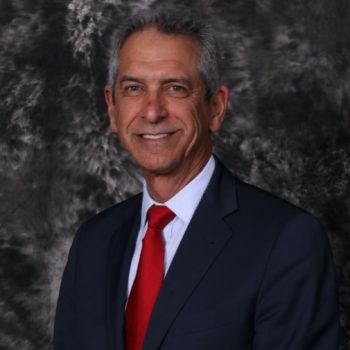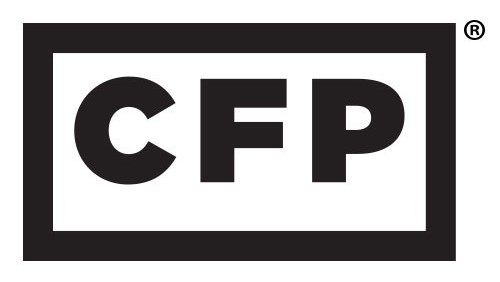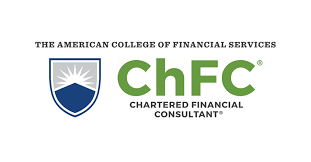Tullahoma Financial Advisor
Pay No Commissions · Invest Based on Evidence
·
Escape the Sales Machine
- Industry-low, fee-only arrangement
- Comprehensive financial planning
- Work with a certified advisor with over 30 years of experience
How Our Process Works




Continued Management and Coaching Services
Tullahoma Advisors

Ira Work, ChFC®, RFC®, AIF®, AAMS®, CASL®, CRPS®
Ira started in the investment industry in 1984 as a stock broker working for First Jersey Securities having a desire to help people become financially independent. He went on to work for several other regional and national firms including Shearson Lehman Brothers and Smith Barney. While working for Shearson Lehman Brothers, he completed the prescribed studies and satisfied the requirements for their Guided Portfolio Management Program.
In April of 1996, Ira concluded – “to best serve my clients and provide impartial advice, I have to be independent.” As a result, he resigned from Smith Barney and formed the Work Financial Group in West Palm Beach FL.
In October of 1996, he completed a one-year course through the Institute of Business and Finance designed to provide a deeper understanding of mutual funds and annuity programs.
In 1998, he began his studies with The American College to earn the Chartered Financial Consultant Designation (ChFC®) which he completed in October of 2003.
In July of 2003, having completed most of his required courses for the ChFC®, he satisfied the requirements of the International Association of Registered Financial Consultants and was awarded the RFC® designation.
In August of 2008, Ira became part of the coaching team of Paul Winkler, Inc. His focus is helping clients understand the common mistakes investors make and what it takes to build successful portfolios. To enhance his client relationships, Ira provides education programs which help investors gain financial peace of mind. As an author, Ira has written articles that have been published in local newspapers and Financial Playbook magazine.
In September of 2011 Ira completed the requirement coursework earning the designation AIF® (Accredited Investment Fiduciary).
In December of 2012 Ira completed the required coursework through the American College earning the AAMS® (Accredited Asset Management Specialist) designation. In 2014, wanting to be able to better help clients going through divorce he earned the CDFA® (Certified Divorce Financial Analyst®) designation through the Institute of Certified Divorce Financial Analysts.
In 2016 he earned the designation CASL® (Chartered Advisor for Senior Living) through The American College.
In February of 2018 he earned the CRPS® (Chartered Retirement Plan Specialist) designation through the College for Financial Planning.
Ira and his wife Elaine enjoy traveling, motorcycle rides, and golf. They have four children and reside in Nashville.

Fiduciary Duty
The law requires a fiduciary advisor to act in the best interest of their clients.
This is not actually required of everyone who calls themselves a financial advisor. Most big financial firms are broker-dealers, and they are held to a “suitability” standard. This means the recommendations need only be “suitable,” but not necessarily in the best interest of the client.
Fee-only RIAs (Registered Investment Advisors)—like us at Paul Winkler, Inc.—are held to the highest fiduciary duty.
Working with an advisor held to the fiduciary standard is essential. It’s one of the keys to relaxing about money.
No Commissions
Aligns our interests with yours
The more you make, the more we make. Under commissions, the return of the product doesn’t matter after the advisor makes the sale.

Allows a broader range of recommendations.
Advisors on commission get paid only if a product is sold. With fee-only, we don’t get paid differently based on different recommendations.
Creates an ongoing relationship.
With ongoing investment management and a financial plan, you must continually review and update the plan as life situations change.
All Advisors either CFP® or ChFC® certified


Why Financial Planning Degrees Matter
Believe it or not, financial planning degrees are not a requirement for financial advisors in the U.S.
You wouldn’t go to a doctor without an M.D. or a lawyer without a J.D., but many don’t realize they’re going to a financial advisor without a financial planning degree.
The CFP® and the ChFC® both have core curriculums that cover every major aspect of personal finance.
This knowledge allows an advisor to put a comprehensive plan together.
A financial plan should address every area of your finances because each area affects the others. Your estate plan affects the tax strategies you use, and your risk management affects the investment strategies, etc.
Financial planning areas should not be addressed in isolation.
So, you must work with someone who has knowledge and experience in each topic.
This knowledge also allows the advisor to be the quarterback of the financial team. With knowledge in every area of financial planning, they are able to put a comprehensive plan together and coordinate with other financial professionals.
A qualified advisor can work with CPAs, insurance agents, and attorneys to utilize their areas of specialization while also ensuring their recommendations meet the needs of the client.
Much financial planning today is narrowly focused on one area of the financial plan.
Insurance agents, for example, sometimes offer “financial planning” that involves buying one-size-fits-all life insurance products to meet all your financial needs. But that’s not the way financial planning should be.
Financial planning should be comprehensive, and should almost always include more than one recommendation and strategy.
A financial planning degree is essential for comprehensive planning, which is why we require all our advisors who meet with clients to have them.
Ira Work, ChFC® at Paul Winkler Inc.,
Tullahoma address:
Contact Information
Office Hours
- Monday-Friday: 8:30-5:30
Phone
- 615-851-1950
Fax
- 615-851-4597
- contact@paulwinkler.com

